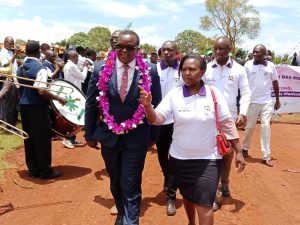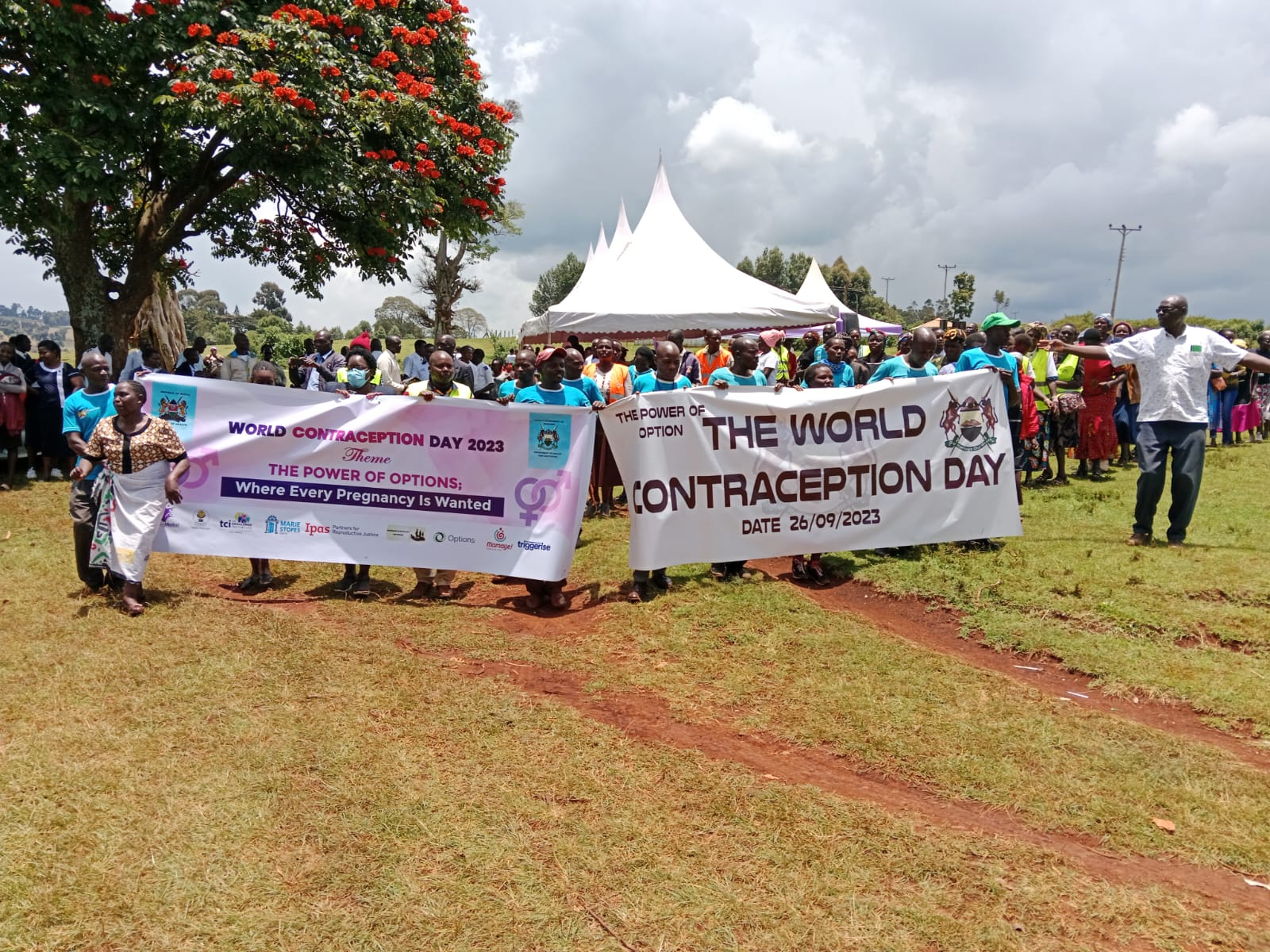By Isabella Maua
Couples in Bungoma County have been encouraged to embrace family planning as a fundamental human right and freedom to have healthier, more controllable families.
While addressing residents during the World Contraception Day celebrations at Kopsiro, Mt. Elgon, David Wanikina, Coordinator of Medical and Special Services Bungoma County, said that contraception is the cornerstone of reproductive health.
“Family planning empowers individuals and couples to make informed decisions about when and how many children to have, essentially making every pregnancy welcomed,” said Dr. Wanikina.
In an area where teenage pregnancies and early marriages still thrive in reticence, disseminating reproductive health knowledge becomes crucial.

According to Millicent Kiplai, Youth and Gender Reproductive Health Officer in Bungoma County, Mt. Elgon has for long been topping the list of unwanted children, mostly among school-going teenagers.
“Our girls should be educated and fundamentally given knowledge on reproduction so as to avoid early unwanted pregnancies, subsequently leading to high levels of illiteracy due to dropout,” admonished Kiplai.
Her sentiments were echoed by Getrude Wanyonyi, County Reproductive Health Coordinator, who stressed the importance of media in encouraging teenagers to be self-aware.
“We greatly rely on the media to be our ambassadors in instilling reproductive health education on our teenagers across all platforms where they can consume this information,” accentuated Wanyonyi.
Despite being in the 21st century, where family planning has allowed people to choose methods that best suit their needs, preferences, and circumstances, some men remain adamant about liberating their wives.
This has led to some enlightened women solely taking the decision of planning their families without their spouses consent.
“I have nine children whom, despite being married, I have had to fend for individually. I decided to take up an implant as a method of planning my family since I don’t need more children,” Phylis Chebet from Kopsiro said.
She divulged that, “Since my husband doesn’t care, I have never shared with him this information because I know he’ll oppose it, yet he’s very unreliable.”
Jackline Nafula has been using a three-year implant to space her four children, and she attests that seeking medical expertise has helped her a lot.
“I gave birth to my firstborn in 2008 and my lastborn in 2014; with this tough economy, I’d encourage all women to embrace family planning because we’re the most hit,” reiterated Nafula.
To promote gender equality, reduce maternal and infant mortality, and create economic opportunities, contraception becomes inevitable.
More so for women in the current society, the power of options goes beyond available contraceptives; it’s about choice, dignity, empowerment, and self-awareness.


